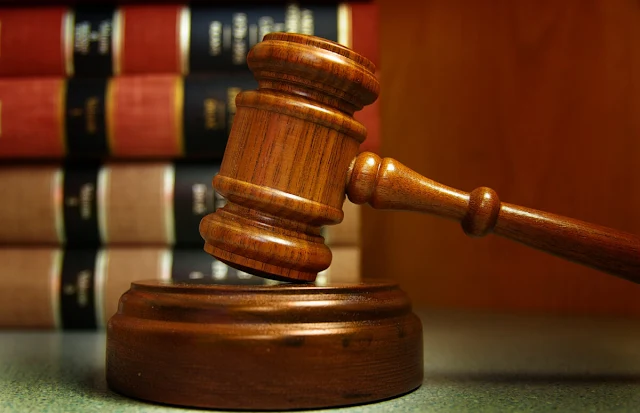The Federal High Court in Lagos dismissed a lawsuit filed by a citizen of Lagos challenging the Lagos State Government's ban on commercial motorcycles on several of its roadways.
According to Justice Akintayo Aluko, Julius Ajibulu's attempt to overturn the prohibition that has been in effect since 2018 "failed woefully."
The judge ruled that Ajibulu failed to prove, among other things, that the Lagos State government lacks the authority to prohibit the use of tricycles and motorbikes on the state's authorised roadways.
The decision came after the plaintiff filed a lawsuit with the case number FHC/L/CS/1389/2020 against the Lagos State Attorney General, Commissioner for Transportation, Governor of Lagos State, and Speaker of the Lagos State House of Assembly as the first through fourth defendants, respectively.
Against commercial motorbikes (Okada) and tricycles (Keke NAPEP), Lagos State took action on January 27, 2020, prohibiting their use in six Local Government Areas (LGAs), nine Local Council Development Areas (LCDAs), and ten main highways throughout the state as of February 1, 2020.
The government instructed security personnel to promptly handle the confusion and disturbance brought on by Okada and tricycle riders operating illegally in prohibited locations by enforcing the State's Transport Sector Reform Law of 2018 to the fullest extent possible.
Additionally, the government outlawed the use of Okadas and tricycles on 40 bridges and flyovers throughout the State.
But Ajibulu argued that the Lagos State Transport Sector Reform Law 2018's Sections 15, 16, 19, 46, and 68 breached Sections 1, 4, Items 11, and 63 of the Exclusive Legislative List in Part 1 of the Second Schedule to the Constitution.
In addition, he said, it violated sections 10(3)(t) of the Federal Road Safety Commission (Establishment) Act, 92 of the same act, and section 1 of the Federal Highways Act/Subsidiary Legislation Cap F13, LFN, 2004.
The court agreed with the defendants that Ajibulu's lawsuit did not have merit in his judgement given on January 12, 2023, a copy of which The Nation was able to get yesterday.
Justice Aluko concurred with Ajibulu's argument that the National Assembly, not the Houses of Assembly of States, has the authority to enact legislation with regard to any matter on the exclusive legislative list under section 4(3) of the Constitution.
He held: “The Plaintiff has referred the court to items 11 and 63 of part 1 in the exclusive legislative list which have to do with construction, alteration and maintenance of such roads as may be declared by the National Assembly to be Federal trunk roads and traffic on Federal trunks roads.
“The Plaintiff has however failed to show to the court that all the over 40 roads and bridges listed in his reliefs are Federal trunk roads declared by the National Assembly as provided under items 11 and 63 in the Exclusive Legislative list under part 1 of the 2nd schedule to the Constitution.
“The Plaintiff failed to establish before the court that the provisions of sections 15, 16, 19, 46 and 68 of the Lagos State Transport Sector Reform Law 2018 were made to apply to the operations of tricycles and motorcycles in respect of the over 40 roads mentioned in his reliefs.”
The judge noted that Ajibulu “failed woefully to prove his entitlement to the reliefs stated in the originating summons.
“The Plaintiffs has failed to establish that the State House of Assembly has no power to have made the law in contention and has equally failed to establish that the State government has no power to ban the operation of tricycles and motorcycles in respect of the designated roads in Lagos State.
“Granting the reliefs of the Plaintiff without placing any credible evidence before the court is tantamount to preventing the State House of Assembly from making laws for the peace, order and good government of the state or any part thereof and engaging in the such venture will undoubtedly constitute a violation of any amount to overrunning section 4(7)CFRN, 1999 (as amended).
“That is forbidden and this court will not venture into such an unconstitutional enterprise.
“Coming from the foregoing, Plaintiff has failed to prove his case by credible evidence as required by law. Accordingly, the case of the Plaintiff lacks merit and same is hereby dismissed.”



